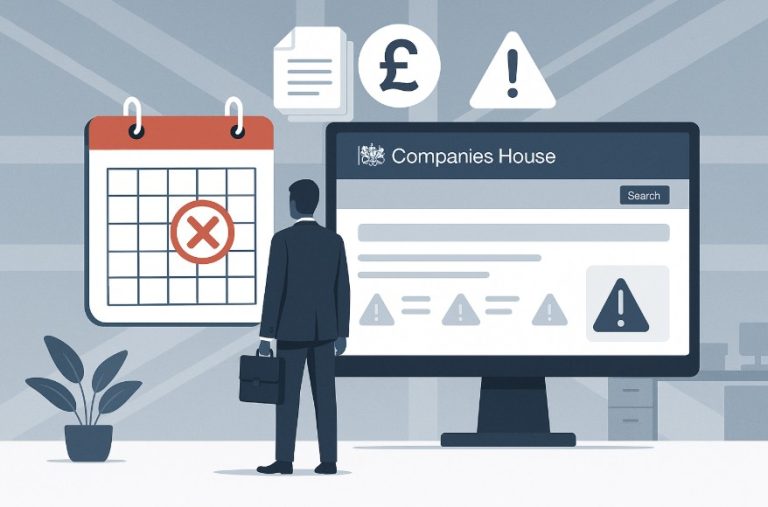There are a few business startup requirements you need to have in place before taking the first step.
This guide from the UK’s leading company registration service, Rapid Formations, walks you through all the essentials to tick off your list. From choosing a legal structure to researching your market and sorting out taxes, here’s how to set up your new business the right way.
What Are the 7 Essential Business Startup Requirements You Need to Know?

1. Understand the Legal Requirements for Setting Up a Business
The first step is choosing a legal structure for your startup and getting properly registered. There are several options, but the most popular structures in the UK are sole traders, limited companies, and limited liability partnerships (LLPs).
Each structure comes with different tax rules, director and officer requirements, and levels of personal liability. For example, sole traders don’t need to register their business with Companies House.
There is also no distinction between the owner and the business. However, sole traders don’t benefit from limited liability protection, which is crucial for reducing risk.
LLP and limited company owners have limited liability, but directors of limited companies have strict legal obligations to uphold at all times.
To set up a limited company, you’ll need to register with Companies House and inform HMRC about your new business to get set up for Corporation Tax.
Other legal requirements for setting up a business include:
- Licences or permits (e.g. if you sell food, play music in your store, or trade in public places)
- Health and safety policies
- Data protection (UK GDPR compliance)
- Employment rules (if you plan to hire staff)
Ready to get started? The quickest and easiest way is via a Companies House-approved company formation service like Rapid Formations. Applications are typically processed in just 24 hours.
2. Research Your Market and Competitors
Many startups fail because they don’t look closely enough at what already exists or what their customers need. Market research doesn’t need to be complicated, but it’s a crucial business startup requirement.
Start by identifying your main competitors. Pinpoint what they offer, their pricing, and what their customers are saying. Also, consider their reviews – what are they doing well, and what can you do better? Look at their social media profiles, audience engagement, and search rankings. These essential steps will help you find your unique selling point.
Then, answer these questions:
- Is there a demand for my product or service?
- What problem does it solve?
- What gaps can I fill that others haven’t?
Use tools like Google Trends and Trustpilot, as well as forums like Reddit and Facebook groups, to understand what your potential customers want.
3. Pick the Right Business Location

Your startup’s location can affect how others will perceive it. It may also have legal or financial implications.
If you’re renting a commercial workspace, it’s best to position yourself among your competitors. For example, tech and design hubs tend to exist in major cities like London and Manchester. Setting up in the right location can assist with future expansion and your professional image.
But renting a private office is expensive, especially for brand new startups. So, working from home is a popular option, helping to cut down on costly overheads. That said, you should think about how your home address could affect your image and whether you want to share your personal information publicly on the Companies House register.
Many startups use a virtual office or professional registered address instead. Protect your privacy and reputation with the Rapid Formations London registered office address services – ideal for startups working from home.
4. Understand Your Financial Obligations
Managing your startup’s finances properly from day one is essential. This can feel daunting if you have no experience in these areas, but we’ll help make it easier.
Start by understanding which taxes apply to your business:
- Sole traders pay Income Tax and National Insurance through annual Self Assessment tax returns
- Limited companies pay Corporation Tax on profits and file annual accounts. Limited company directors may also need to submit Self Assessment tax returns to HMRC depending on their income sources.
- VAT applies if your company’s annual turnover exceeds £90,000, but you can register voluntarily if you want your company to look larger or reclaim VAT.
We also recommend:
- Opening a dedicated business bank account to keep your business and personal finances separate, making accounting considerably easier
- Investing in a simple bookkeeping or accounting software to assist with record-keeping
- Understanding when to file tax returns – The deadline for online submissions is midnight on 31 January every year. Paper forms must be delivered by midnight on 31 October every year.
- Consider business insurance like public liability, professional indemnity, or employers’ liability to protect yourself and your startup from unwanted legal expenses
5. Choose the Right Business Name and Domain
Your business name matters – and not just for branding. One requirement for setting up a limited company is that your business name is legally acceptable.
Firstly, it must be unique. Use the name checker on the Rapid Formations website to check if your ideal company name is available.
Secondly, avoid sensitive or restricted words or expressions (like Royal or Bank) unless you have permission.
Third, be sure to include the correct ending. It’s ‘Limited’, ‘LTD’, or the Welsh equivalent if forming a private limited company, and ‘PLC’, ‘Public limited company’, or the Welsh equivalent for public companies.
Consider your business name from a practical perspective, too. For instance:
- Is it easy to remember?
- Is it relevant to your industry or what you sell?
- Will your customers understand it?
- How might it impact branding and design?
Once you’ve settled on a business name, register a domain and social media handles to match. This makes your business more trustworthy online and easier to find.
6. Write a Business Plan

A business plan is an essential business startup requirement. Without it, it’s difficult to understand your commercial goals, how to achieve them, and whether your idea is truly viable.
You don’t need a 40-page document, but you should take the time to create a plan that clearly defines:
- What you’re selling and why
- How much the business will cost to launch
- How much you’ll need to survive the first three years
- What your expected running costs and income will be
- Your break-even point
- Your market analysis
- Any risks or challenges involved
Don’t rely on memory or mental planning. Simply writing your objectives down can help clarify your thinking and spot crucial gaps. You can then use your business plan to get feedback from others and apply for funding.
7. Protect Your Idea
Registering a limited company legally protects your company name, ensuring no other business can use the same name as yours – unregistered businesses don’t benefit from this. However, other elements like your logo or slogan are also worth protecting.
This isn’t a business startup requirement, but we highly recommend registering trade marks, copyrights, and patents for any intellectual property you wish to protect. Without them, anyone can steal the business identity you’ve worked hard to create.
It’s also worth putting contracts, agreements, or terms and conditions in place, especially if you plan to work with external partners or contractors.
Launch Your Startup in Confidence
You don’t need to have everything figured out before starting a business, but a little planning beforehand can save you a lot of undue stress later.
Tick off the essential business startup requirements we’ve compiled in this blog, and you’ll be much better prepared to register your company, attract customers, and grow confidently.





